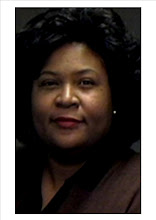The Securities and Exchange Commission announced on May 20, 2009 that it is paying 257,000 of AIG’s investors $843 million from a fund established by the SEC out of a fine AIG paid to settle “reinsurance” fraud claims.
 “Reinsurance” occurs when one insurance company insures the liabilities of another, which allows the reinsured company to take those potential claims off its books. An insurance company is required to keep available a set ratio or “reserve” of financial assets in order to pay off claims as they occur. Reinsuring its insurance policies allows an insurance company to take those risks off its books and thus sell more insurance policies without increasing its financial reserves.
“Reinsurance” occurs when one insurance company insures the liabilities of another, which allows the reinsured company to take those potential claims off its books. An insurance company is required to keep available a set ratio or “reserve” of financial assets in order to pay off claims as they occur. Reinsuring its insurance policies allows an insurance company to take those risks off its books and thus sell more insurance policies without increasing its financial reserves. Back in 2006, AIG acknowledged that it had conspired with Warren Buffet’s reinsurance company General Re Corp. to fraudulently restate $3.8 billion in earnings from 2000 through 2004 and agreed to pay the $1.64 billion regulatory settlement.
Five executives from AIG and General Re were convicted in that accounting and reinsurance fraud.
Former Gen Re assistant general counsel Robert Graham was convicted of conspiracy, securities fraud, mail fraud and making false statements to the SEC. On May 1st, Graham was sentenced to serve one year and one day and ordered to pay a $100,000 fine.
Christian Milton, former head of reinsurance at AIG received a four-year sentence on the same charges as Graham. Ronald Ferguson, former Gen Re chief executive, received two years; and former Gen Re senior vice president Christopher Garand got one-year.
On April 2, 2009, Elizabeth A. Monrad, former finance chief at Gen Re got 18 months in prison and a fine of $250,000. Her sentencing judge, Judge Christopher Droney, in issuing her sentence said, “There were many opportunities for her to come to her senses and shake this shady deal, but she never did.”
AIG has not yet come to its senses and shaken its shady reinsurance deal, either.
Thomas Gober is a forensic accountant and a former state insurance examiner. He has told the House Financial Services Committee that the loans which AIG has on the books to and from its 71 interlocking domestic U.S. insurance companies simply do not add up.
Gober and other insurance regulators say the true amount of the debts and losses of AIG’s U.S. insurance companies could be hundreds of billions of dollars more than what AIG currently admits to. Gober says AIG’s U.S. insurance business is “a house of cards.”
It gets even worse when the reinsurance by AIG’s foreign companies are added into the mix.
One of AIG’s foreign subsidiaries is American International Reinsurance Company, Inc. (“AIRCO”). AIG’s founder, Cornelius Vander Starr, created AIRCO in 1948 and established it as a Bermuda company to be used as an off-shore re-insurer for his AIG international family of companies.
Buried within AIG’s 2008 Annual Report is the admission that: “Various AIG profit centers, including Commercial Insurance, AIU and AIG Risk Finance, as well as certain Life Insurance subsidiaries, use AIRCO as a reinsurer for certain of their businesses. In Bermuda, AIRCO discounts reserves attributable to certain classes of business assumed from other AIG subsidiaries.”
Got that? AIG uses the reinsurance function of its Bermuda company AIRCO to discount the reserve requirements of its other AIG insurance companies.
As Newsweek writer Michael Hirsh, notes: “[T]he implications are almost too awful to contemplate. Despite its troubles on Wall Street, AIG is still the largest insurance company in the United States, controlling both the largest life and health insurer and the second-largest property and casualty insurer.”
Maybe it is a final ominous note or perhaps it is a simple career choice, but AIG’s chairman and CEO, Edward Libby, turned in his resignation on May 21, 2009.



